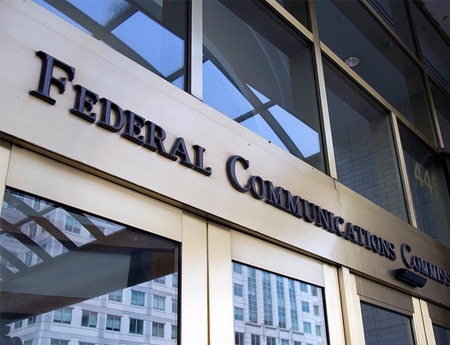Appeals Court Denies Broadcaster Auction Challenge

The smarter way to stay on top of broadcasting and cable industry. Sign up below
You are now subscribed
Your newsletter sign-up was successful
The U.S. Court of Appeals for the D.C. Circuit has denied a broadcaster challenge to the FCC's incentive auction framework.
In August 2014, the National Association of Broadcasters challenged the FCC's broadcast incentive auction, saying that its framework "violates the Spectrum Act; (2) is arbitrary, capricious, and an abuse of discretion under the Administrative Procedure Act." Sinclair also sued over the auction. The court rejected both challenges.
"Petitioners press a series of arguments challenging the Commission’s implementation of the Spectrum Act’s mandate to expend 'all reasonable efforts' to preserve 'the coverage area and population served' of broadcasters reassigned to new channels in the repacking process. We reject petitioners’ arguments," a three-judge panel of the court said.
NAB's primary beef is with how the FCC is proposing to predict TV station coverage areas, which it says could result in significant viewership loss. The NAB says that the FCC changed the methodology (the OET-69 bulletin) in contravention of the statute.
“We are confident that the Report and Order fulfills the mandates established by Congress on this complex matter," an FCC spokesperson had said at the time.
They were right. "We agree with the Commission that the statutory text does not preclude the Commission’s decision to use the improved TVStudy software and more accurate and current data when determining a broadcast licensee’s coverage area and population served," the court said.
Broadcasters had also argued that the FCC was wrong in not protecting fill-in translators--which extend a full-power station's signal--in the auction repack. The court said the FCC could have protected them, but was not required to do so. "We defer to the Commission’s reasonable implementation of the mandate," the court said.
The smarter way to stay on top of broadcasting and cable industry. Sign up below
Sinclair had challenged two elements of the framework: 1) the FCC's 39-month "go dark" deadline for stations to transition to new channels or go off the air, and 2) the FCC's interpretation of the requirement that at least two stations have to compete in the auction for the FCC to accept their spectrum for bid. The FCC interpreted that to mean at least two stations nationwide, rather than in each market.
The court said Sinclair had established that there was a "substantial" risk that one of its stations will miss the go-dark deadline. But the court said, procedurally, it found nothing arbitrary or capricious about that cut-off date and, in fact, "easonably balanced the Spectrum Act’s competing imperatives."
The court said Sinlclair fared no better in its other challenge. "To require the Commission to forgo the spectrum merely because no other broadcaster in the same geographic market wishes to sell 'would limit the Commission’s ability to allow market forces to determine the highest and best use of spectrum” and prevent acquisition of adequate spectrum to allow the auction to close," the court said.
The court also pointed out that that FCC interpretation can't hurt a station since if there is only one station in a market willing to give up spectrum, that will mean it likely gets a higher price.
During oral argument in March, both sides had skillful advocates, and both appeared to score some points, though broadcasters had the tougher climb given the "Chevron" deference usually accorded agencies for their subject matter expertise. The judges seemed unpersuaded by the argument against using the updated methodology.
"Throughout the incentive auction proceeding, NAB's focus has been on preserving a robust local television service that is the envy of the world," said NAB spokesman Dennis Wharton. "We're disappointed with today's ruling, which we believe fails to hold the FCC to the letter of the law passed by Congress. Nonetheless, we remain committed to working with policymakers to ensure a successful auction that protects the interests of broadcasters, whether they participate or not, and does not disenfranchise our tens of millions of viewers."
John Hane, a partner in the law firm of Pillsbury Winthrop Shaw Pittman LLP, who represented Sinclair in the court challenge said: “On behalf of Sinclair Broadcast Group, we share NAB’s disappointment with today’s court ruling, but will continue to work with the FCC to ensure that the FCC fulfills its Congressional mandate to protect the interests of broadcasters in the post-auction repacking.”
“Our Coalition intervened on behalf of the FCC in these appeals and we are thrilled with the result," said Preston Padden, executive director of the Expanding Opportunities for Broadcasters Coalition. "This is a tribute to the hardworking FCC Staff and great news for starting the Incentive Auction early in 2016."
"Today’s decision by the D.C. Circuit is a decisive win for wireless consumers, as the court has affirmed the FCC’s Incentive Auction Order in whole," said CTIA: The Wireless Association. "We are thankful that the court addressed these issues quickly and look forward to a successful and timely incentive auction that delivers access to more spectrum as soon as possible to be able to meet ever increasing mobile broadband demand."
Contributing editor John Eggerton has been an editor and/or writer on media regulation, legislation and policy for over four decades, including covering the FCC, FTC, Congress, the major media trade associations, and the federal courts. In addition to Multichannel News and Broadcasting + Cable, his work has appeared in Radio World, TV Technology, TV Fax, This Week in Consumer Electronics, Variety and the Encyclopedia Britannica.

